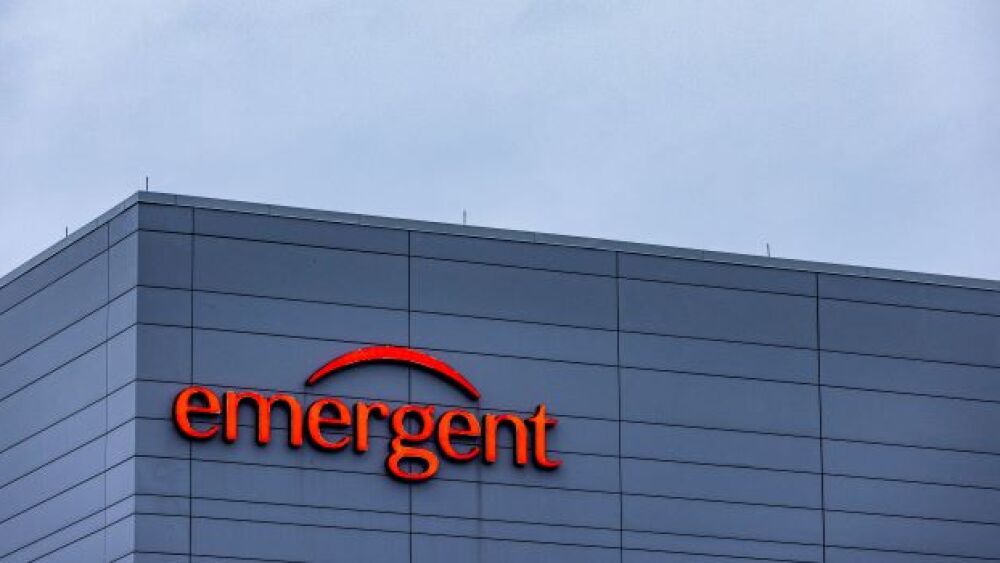The U.S. FDA has requested that Emergent BioSolutions temporarily pause production of ingredients for the Johnson & Johnson COVID-19 vaccine at their facility in Baltimore.
Tasos Katopodis_Getty Images
The U.S. Food and Drug Administration (FDA) has requested that Emergent BioSolutions temporarily pause production of ingredients for the Johnson & Johnson COVID-19 vaccine at their facility in Baltimore. The FDA initiated an inspection of the plant on April 12, and on April 16, requested they halt manufacturing until the assessment and reporting were completed.
Around April 1, it was reported that Emergent had ruined the production of an ingredient for Johnson & Johnson’s COVID-19 vaccine.
J&J had a contract with Emergent to manufacture the ingredient at the facility in Baltimore. At that time, the company was part of J&J’s manufacturing network but didn’t have FDA authorization to produce that part of the vaccine.
Emergent was in the process of scaling up manufacturing. The mistake spoiled what would have been a part of 15 million vaccine doses.
At issue was a mix-up by Emergent of vaccine vectors manufacturing for both J&J and AstraZeneca. Although both vaccines use a harmless virus as a vector, the companies’ vectors are biologically different and not interchangeable.
In late February, one or more staffers at the factory confused the two. Emergent noted at the time that its quality control systems “worked as designed” to identify the problem and isolate the batch.
The recently concluded inspection found nine deficiencies. One of them was Emergent’s failure to adequately train staff in manufacturing and quality control. The inspection also found that the facility’s equipment was not an appropriate size and that components of the drug weren’t stored correctly to prevent contamination. It also saw that the building was not in a clean and sanitary condition.
Reps. Carolyn B. Maloney (D-NY), chairwoman of the House Committee on Oversight and Reform, and James E. Clyburn (D-SC), chairman of the Select Subcommittee on the Coronavirus Crisis, have sent a joint letter to Robert G. Kramer, Emergent’s chief executive officer, and Fuad El-Hibri, the company’s executive chairman, requesting they testify before the coronavirus subcommittee.
“Specifically,” they wrote, “we are investigating reports that Emergent received multi-million-dollar contracts to manufacture coronavirus vaccines despite a long, documented history of inadequately trained staff and quality control issues.”
The focus of the investigation appears to be on Robert Kadlec, a former consultant to Emergent, who was President Trump’s assistant secretary for preparedness and response, who was involved in helping Emergent win the contract.
They have also requested Emergent turn over a wealth of documents, including all federal contracts since 2015, all communication with Kadlec, and information on audits and inspections of its facilities, drug pricing, and executive compensation.
The letter also stated, “Emergent received $628 million in June 2020 to establish the primary U.S. facility for manufacturing vaccines developed by Johnson & Johnson and AstraZeneca.” It went on to note that Kadlec “appears to have pushed for this award despite indications that Emergent did not have the ability to reliably fulfill the contract.”
Reportedly, an FDA investigation of the Baltimore facility in April 2020 indicated the company didn’t have the appropriate personnel to manufacture a coronavirus vaccine. In June, an additional inspection found the company’s plan for the manufacturing was inadequate because of poorly trained staff and quality control issues.
Emergent destroyed the 15 million contaminated doses of the J&J vaccine. Another 62 million are on hold until the investigation determines if they were affected by the issue.
The letter also said Congress wanted to look at Emergent’s role as the country’s only anthrax vaccine provider in the Strategic National Stockpile.
“Emergent has raised the government purchasing price of the anthrax vaccine by 800% since acquiring the drug in 1998. As a result, through most of the last decade, nearly half of the SNS’s budget has been spent purchasing Emergent’s anthrax vaccine.”
Also at issue was that after Kadlec was confirmed in the Trump administration, the company received millions of dollars in federal contracts from his agency, including stockpile awards that did not involve competitive bidding.
Emergent had also pushed for oversight of the stockpile to be turned over to Kadlec. It was previously supervised by the Centers for Disease Control and Prevention (CDC) and the Office of the Assistant Secretary of Preparedness and Response.
They are being asked to testify before the subcommittee on May 19 at 10:30 a.m. ET.
The J&J COVID-19 vaccine is currently on hold in the U.S. for entirely different reasons. The vaccine has been associated with six cases in the U.S. of a “rare and severe’ type of blood clot, cerebral venous sinus thrombosis (CVST), in combination with thrombocytopenia. All cases were in women between the ages of 18 and 48 years. This is six cases of blood clots in about seven million doses.
The FDA’s Advisory Committee on Immunization Practices (ACIP) is scheduled to meet on Friday, April 23, to recommend its use. ACIP initially met on April 14, but at that time said they did not have enough data to make a recommendation.
In a related story, J&J reported that it had made $100 million from its COVID-19 vaccine in the first quarter. The pharmaceutical business, which developed the vaccine, generated $12.19 billion in revenue, an increase of 9.6% year-over-year, driven by Darzalex for multiple myeloma and Stelara for Crohn’s disease.
J&J’s chief scientific officer, at the company’s investor call for the first quarter, said, “We hope by making people aware [of the risk, as well as putting clear diagnostic and therapeutic guidelines in place, that we can restore the confidence in our vaccine.”
In terms of the Emergent BioSolutions problem, J&J told CNBC that it would work with Emergent and the FDA “to address any findings at the conclusion of the FDA inspection. Our goal remains ensuring all drug substances for our COVID-19 vaccine meets our high-quality standards and securing Emergency Use Authorization for drug substance manufactured at Emergent Bayview. At this time, it is premature to speculate on any potential impact this could have on the timing of our vaccine deliveries.”





